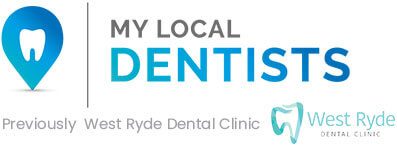Broken Tooth Pain — Causes, Treatment Options, and Prevention Tips

A tooth is one of the most essential parts of our body, but sometimes, it can suffer damage for various reasons.
One of the common problems that people face is broken tooth pain.
It can result from a chipped or cracked tooth, tooth fracture, or split tooth.
Broken tooth pain can be severe, causing discomfort while eating, speaking, or breathing, impacting your overall quality of life.
In this blog post, we’ll explore the causes, symptoms, and treatments of broken tooth pain to help you understand the issue better.
Signs and Symptoms of Broken Tooth Pain
Sharp Pain When Biting or Chewing
If you experience a sudden sharp pain when biting down on food could be a sign of a broken or cracked tooth.
This pain may come and go but increase in intensity over time, especially if the crack grows.
Pay attention to any discomfort or pain while eating, as this is one of the most common symptoms of a cracked or broken tooth.
 Sensitivity to Hot or Cold Temperatures
Sensitivity to Hot or Cold Temperatures
If you experience any sensitivities to hot or cold foods or drinks, it could be due to a broken or cracked tooth.
A fractured tooth allows temperature changes to pass rapidly to the nerves, causing painful sensations.
When you feel sharp or shooting pains in your teeth after consuming hot or cold liquids, you must visit a dentist for proper diagnosis and treatment.
Swelling Around the Affected Tooth
Swelling around the affected tooth is another sign of a broken tooth that you should never ignore.
In this case, the swelling is a result of bacterial infection from the open nerve in the tooth.
The swelling may grow, become painful, and even spread to other face areas.
You should visit your dentist immediately if you notice any swelling or lumps in your mouth.
Bleeding or Sore Gums
A cracked or broken tooth can lead to gum issues and result in bleeding and soreness of the gums.
The sharp edges of the tooth enamel can irritate the gum line, leading to inflammation and soreness.
If left untreated, this can cause an infection requiring tooth extraction or root canal therapy.
Visible Damage to the Tooth
Lastly, visible damage to the tooth may be a sign that the tooth is broken or fractured.
This can include chips or cracks on the enamel, a tooth fracture, or a split tooth.
In some cases, a person may have a broken tooth, but they cannot see visible damage.
That’s why scheduling regular dental checkups is essential, as your dentist can detect a cracked or broken tooth before it becomes severe.
Causes of Broken Tooth Pain
 Trauma to the Mouth
Trauma to the Mouth
One of the most common causes of a broken tooth is dental trauma to the mouth.
This can happen for several reasons, like sports injuries or falls.
When there’s an impact on your face, the pressure on your teeth can be significant and cause them to crack or chip away.
It’s important to seek immediate dental attention as broken tooth pain can be severe and lead to complications like infection.
Treatment options may include filling material, crown placement, or tooth extraction.
Tooth Decay
Tooth decay is another common cause of broken tooth pain.
Even a small untreated cavity can deepen and weaken the tooth structure, leading to a cracked or broken tooth.
Natural wear and tear from eating hard foods can also lead to this condition.
Early intervention is the key to prevent further damage.
Treatment options range from filling material, crown placement or root canal therapy, and even tooth extraction.
Natural Wear and Tear
Teeth, like anything else we use regularly, experience natural wear and tear over time.
This process can lead to decay, tooth enamel erosion, and tooth structure weakening, leading to fractures or cracks.
When a tooth cracks, it causes broken tooth pain and is also susceptible to infection.
The affected tooth’s location can also cause further complications like the crack reaching the gum line or affecting the nerve.
If this happens, root canal therapy may be necessary.
Treatment Options for Broken Tooth Pain
Dental Fillings
Dental fillings are among the most common treatments for chipped or broken teeth.
This treatment involves removing the affected tooth’s decayed part and filling the cavity with a dental composite material.
The material is shaped and polished to restore the tooth’s shape and colour.
Dental fillings are particularly useful for small to medium-sized cavities and chips below the gum line.
The pros include minimal chairside time, affordability, and minimal discomfort.
However, dental fillings are not ideal for severe tooth fractures, as the material cannot withstand the heavy biting force.
Crowns
Crowns are a popular treatment option for cracked or broken tooth syndrome.
A crown is a custom-made cap that covers the damaged tooth’s visible parts to restore its function and aesthetics.
A crown can be made of various materials, such as porcelain, metal, or both. Crowns can provide added strength and durability to protect the affected tooth.
However, the procedure can be invasive and require significant tooth trimming.
Root Canal
Root canal therapy is recommended when a cracked or broken tooth has spread to the pulp tissue, which houses the tooth’s nerves and vessels.
This treatment involves removing the infected and inflamed pulp, cleaning the root canal, and filling the canal with dental material.
Root canal therapy can preserve the affected tooth’s natural structure and avoid extraction.
However, the procedure can be extensive, taking up to two appointments.
Tooth Extraction
Tooth extraction is a last resort treatment for a cracked or broken tooth below the gum line that is beyond repair.
The procedure involves numbing the affected tooth, separating it from its socket and removing it from the gum.
Despite being an effective solution, tooth extraction can cause anxiety and discomfort and require an extensive healing period.
Patients should also budget for tooth replacement options such as dentures or implants.
Prevention Tips for Broken Tooth Pain
Wearing a Mouthguard During Sports
Playing sports increases the risk of a broken tooth. To prevent this, it’s important to wear a mouthguard.
Mouthguards protect the teeth by absorbing the pressure from any blow.
Custom mouthguards are the best, but even the over-the-counter ones are good enough to protect your teeth.
So, next time you play sports, remember to wear a mouthguard and protect your teeth from damage.
Avoiding Hard Foods and Candy
Eating hard foods and candy can lead to a cracked or broken tooth. Avoid biting into hard candy because it can chip your tooth enamel. Similarly, avoid biting into popcorn kernels or ice.
Biting into hard foods can crack your affected tooth, causing tooth pain or other related problems. Consider eating soft foods that won’t harm your teeth to prevent this.
Practising Good Oral Hygiene
Good oral hygiene can prevent cracked or broken teeth. It involves brushing, flossing and seeing your dentist regularly.
When you brush, use a soft-bristled toothbrush and fluoride toothpaste. This helps to remove any plaque and bacteria from your teeth.
Flossing can help to remove any food debris between your teeth, preventing tooth decay and gum disease.
Finally, seeing your dentist regularly can help detect early signs of tooth cracks and prevent further damage.
 Visiting the Dentist Regularly
Visiting the Dentist Regularly
Tooth fractures or cracks often go unnoticed. They can start as a minor issue and later develop into a painful tooth problem. Regular dental checkups can help diagnose cracks or fractures early enough, making them easier and less expensive to repair.
Only a dentist can diagnose a cracked tooth by performing a thorough exam, X-rays, or other diagnostic measures.
Depending on the extent of your damage, the dentist may recommend root canal therapy, tooth extraction, or restorative work.
Seeking Broken Tooth Pain Relief
If you have a broken or cracked tooth, there are some remedies you can do to relieve pain before seeing your dentist.
The first remedy is to rinse your mouth with salt water. This helps to reduce pain and swelling.
You can also take painkillers such as ibuprofen to relieve pain. However, these remedies only provide temporary relief and will not fix the underlying issue.
Fix the issue of a cracked or broken tooth; only a dentist can do it accurately.
Conclusion
Broken tooth pain can be a severe and discomforting dental issue affecting your daily life.
If you experience any symptoms, you must seek professional help only from a dentist.
Moreover, preventive measures like avoiding hard foods, maintaining oral hygiene, and having dental checkups can help prevent broken tooth pain. Remember, a little care can go a long way in keeping your dental health.
If you’re experiencing tooth pain, don’t hesitate to contact our dentists on (02) 9809 7000.
Note: Any surgical or invasive procedure carries risks. Before proceeding, you should seek a second opinion from an appropriately qualified health practitioner.
References
Dental Pain
https://www.researchgate.net/publication/258314161_Dental_pain
Broken Tooth: Care Instructions
https://myhealth.alberta.ca/Health/aftercareinformation/pages/conditions.aspx?hwid=uh3732#:~:text=To%20relieve%20pain%20and%20swelling,until%20you%20see%20your%20dentist
